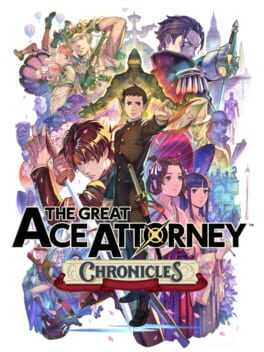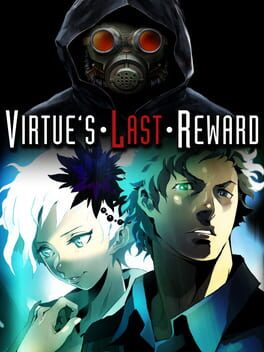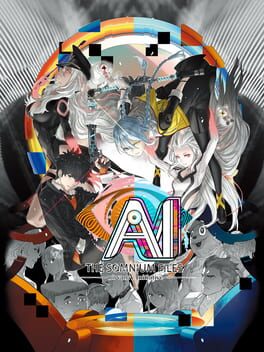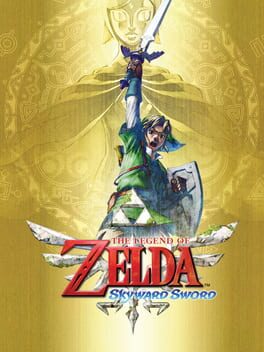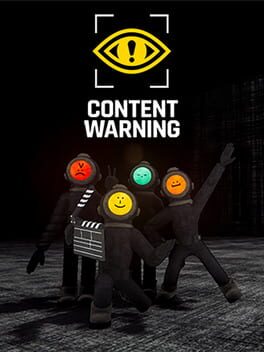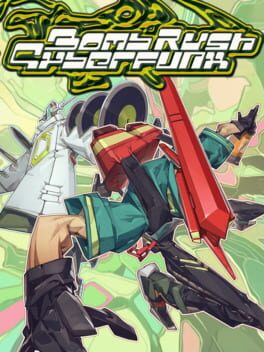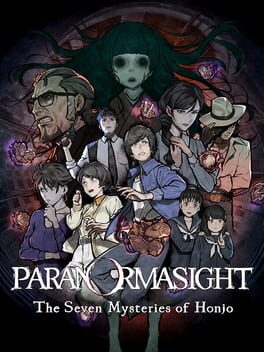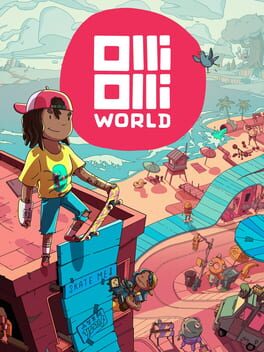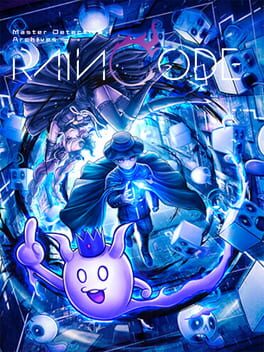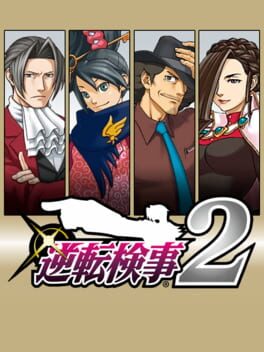nikua_
Bio
chill girl who likes vns and nintendo 🌸
chill girl who likes vns and nintendo 🌸
Badges

GOTY '23
Participated in the 2023 Game of the Year Event

Gone Gold
Received 5+ likes on a review while featured on the front page

1 Years of Service
Being part of the Backloggd community for 1 year

Well Written
Gained 10+ likes on a single review

Liked
Gained 10+ total review likes

GOTY '22
Participated in the 2022 Game of the Year Event

Popular
Gained 15+ followers

Best Friends
Become mutual friends with at least 3 others

Noticed
Gained 3+ followers

Gamer
Played 250+ games

N00b
Played 100+ games
Favorite Games
476
Total Games Played
012
Played in 2024
013
Games Backloggd
Recently Played See More
Recently Reviewed See More
"How could this get any worse?" I found myself saying this aloud time and time again throughout my playthrough of this game. And to my amazement, Rain Code always managed to outdo itself. It's incredible how the game is capable of pulling this off, I honestly must applaud.
Everything about this game is made to undermine something else, and it is one of the most brilliant ways of writing a story. Mysteries that seem difficult to solve? Don't worry, the core mechanic of the game, the Mystery Labyrinth, will spoon-feed the answers to you. Solving a mystery means killing the culprit, what a cool idea that could be used for some heavy moral decisions later! Not to worry though, most of the culprits are either petty criminals or already dead. Partner characters enter the Mystery Labyrinth with the protagonist, meaning a sizeable chunk of their screentime, and therefore development, happens there. Too bad they lose their memories of everything that happened within when exiting said Mystery Labyrinth! I could go on.
How could this get any worse? These mechanics being at odds with each other is bad enough, but how about some of the worst gameplay in a visual novel yet? Not only are the controls themselves incredibly sluggish, but there are horrendous copies of minigames that were in Danganronpa that serve little to no purpose other than to rehash things people seemed to like about those games. In-between these minigames are sections of nothing but mindlessly walking forward in a straight line until getting to the next one. There are boring and forced side-quests as well as points you earn that go towards a skill tree, both of which serve zero purpose other than to make the game longer and have the appearance of there being more to do.
How could this get any worse? All of Rain Code's problems culminate in one of the most absurd and atrocious final chapters of any story I have ever experienced. Every issue is dialed to the max, and Rain Code isn't afraid to jump the shark and go completely off the deep end. But in a strange turn of events, it was the most enjoyable part of the game. I didn't enjoy it for the reasons that the creator, Kazutaka Kodaka, wanted me to, however. This was an entertaining train wreck that somehow kept getting worse and worse, and I grabbed my popcorn and watched it go up in flames. I am astonished at just how bad it got, and because of that, I enjoyed laughing at everything this game tried to do.
With enough noise, anything can become a symphony. Rain Code conducts this orchestra with such fine attention to detail, making sure nothing is consistent and nothing is harmonious. It walks a thin line between the amazing bad, and the just bad. And what an orchestra it is. I found myself appalled at every twist and turn this game took, and I would once again repeat: "How could this get any worse?"
And yet, it does. After suffering through this piece of shit for hours on end, I reached an epiphany. Among the chaos, I became enlightened: "This is one of the worst games ever, which is why it's one of the best games ever." No game, nay, piece of media will ever achieve what Rain Code has done. While being one of the most inconsistent and infuriating things ever, with awful gameplay, minimal thematic tones, and ideas that constantly undermine themselves, Rain Code is able to use its absurdity to rise above the standards of what makes something "good" or "bad" and become something uniquely its own. The best part? It's not meant to be absurd. It's supposed to be serious. This game fucking sucks in every sense of the word, and at the same time, it is one of the most entertaining games ever. I laugh at this game, not with it. And it feels goddamn amazing.
So, Kodaka, I ask you: How could you get any worse?
Everything about this game is made to undermine something else, and it is one of the most brilliant ways of writing a story. Mysteries that seem difficult to solve? Don't worry, the core mechanic of the game, the Mystery Labyrinth, will spoon-feed the answers to you. Solving a mystery means killing the culprit, what a cool idea that could be used for some heavy moral decisions later! Not to worry though, most of the culprits are either petty criminals or already dead. Partner characters enter the Mystery Labyrinth with the protagonist, meaning a sizeable chunk of their screentime, and therefore development, happens there. Too bad they lose their memories of everything that happened within when exiting said Mystery Labyrinth! I could go on.
How could this get any worse? These mechanics being at odds with each other is bad enough, but how about some of the worst gameplay in a visual novel yet? Not only are the controls themselves incredibly sluggish, but there are horrendous copies of minigames that were in Danganronpa that serve little to no purpose other than to rehash things people seemed to like about those games. In-between these minigames are sections of nothing but mindlessly walking forward in a straight line until getting to the next one. There are boring and forced side-quests as well as points you earn that go towards a skill tree, both of which serve zero purpose other than to make the game longer and have the appearance of there being more to do.
How could this get any worse? All of Rain Code's problems culminate in one of the most absurd and atrocious final chapters of any story I have ever experienced. Every issue is dialed to the max, and Rain Code isn't afraid to jump the shark and go completely off the deep end. But in a strange turn of events, it was the most enjoyable part of the game. I didn't enjoy it for the reasons that the creator, Kazutaka Kodaka, wanted me to, however. This was an entertaining train wreck that somehow kept getting worse and worse, and I grabbed my popcorn and watched it go up in flames. I am astonished at just how bad it got, and because of that, I enjoyed laughing at everything this game tried to do.
With enough noise, anything can become a symphony. Rain Code conducts this orchestra with such fine attention to detail, making sure nothing is consistent and nothing is harmonious. It walks a thin line between the amazing bad, and the just bad. And what an orchestra it is. I found myself appalled at every twist and turn this game took, and I would once again repeat: "How could this get any worse?"
And yet, it does. After suffering through this piece of shit for hours on end, I reached an epiphany. Among the chaos, I became enlightened: "This is one of the worst games ever, which is why it's one of the best games ever." No game, nay, piece of media will ever achieve what Rain Code has done. While being one of the most inconsistent and infuriating things ever, with awful gameplay, minimal thematic tones, and ideas that constantly undermine themselves, Rain Code is able to use its absurdity to rise above the standards of what makes something "good" or "bad" and become something uniquely its own. The best part? It's not meant to be absurd. It's supposed to be serious. This game fucking sucks in every sense of the word, and at the same time, it is one of the most entertaining games ever. I laugh at this game, not with it. And it feels goddamn amazing.
So, Kodaka, I ask you: How could you get any worse?
i went in with fairly high expectations due to how much everyone loves this game but honestly i was pretty disappointed. the pacing was awful and some of the characters were just insufferable. its overarching story was just fine but other than that i didn't love this. music and presentation were great, but didn't do much for me in the story department, which is what i value about ace attorney.
What does it mean to be part of a series? Should a piece of media be viewed only on its own merits, or should it be compared to what came before? This debate has plagued many discussions in the past, but there is no correct answer. Both sides of this argument fail to see the nuance that comes with a series and how the status quo can progress while still paying respects to the legacy of a work of art. There is a dichotomy there that I want to touch on because I feel that Breath of the Wild does not uphold the legacy of the Legend of Zelda series very well and is too much of a departure from what I know, love, and expect of a game that comes with that series label.
The Legend of Zelda: Tears of the Kingdom introduces some amazing new ideas and concepts to the series while also connecting itself to that larger scope and relating its ideas to ones from games in the past. It honors the Zelda series title while still being its own entity and making strides to be truly unique.
Ultimately, it's naive to look at a game in a vacuum because that's just not possible. You can't just ignore what came prior. Expectations and familiarity play roles in everything, and yes, things can't just remain stagnant, however, that legacy can still be upheld and respected while still differentiating enough from that norm. Breath of the Wild tries to detach itself in almost every way from the series to a point where it's practically unrecognizable. That hurts, as someone who's grown up with this franchise. Yes, there is a benefit to looking at just what a game does well on its own. There is a nuance to this argument in that neither side is completely the right answer. Breath of the Wild isn't trying to be a typical Zelda game. And for that, it does extremely well. ...But it's still a Zelda game. It's the legend of ZELDA: Breath of the Wild. It's still a part of this series and it can't shake that name away. I felt let down by how the series as a whole was treated in BOTW and it left an incredibly bitter taste in my mouth.
Tears of the Kingdom strays even further from the typical Zelda identity while, at the same time, somehow making itself more connected to the series than BOTW ever was. TOTK is a breathtaking, inspiring game that takes the foundation of BOTW and builds upon it by allowing you to have the ability to do literally anything in the world with any object. It explores the new race that BOTW introduced but never truly went in-depth about, and I love that. The Zonai are one of my favorite new races in the series, I’m glad they got the love they deserved. TOTK is a goofy and charming game that has me discovering something new and constantly laughing because of some insane finding or contraption I was able to create. The new areas and dungeon aesthetics are some of the most unique and intriguing in the entire franchise, and serve as something that makes this game really stand out amongst the crowd.
It's also moodier, with a tense conflict between past and present that is a lot more dire and unnerving at times, aided by some of the terrifying enemies, areas, and bosses that really make the whole experience a lot more unsettling and serious. The dark and overbearing depths contribute to that feeling, as well as the more involved and emotional story. The game walks a thin line between serious and silly and does it with such excellence that I can't help but adore it for that.
Finally, Tears of the Kingdom is also just more Zelda-y. There are more references and ties to the main series, such as gibdos, like-likes, bomb flowers, poes, the magic armor, and so, so much more. It reimagines and redefines the age-old tale of Ganondorf, the once-in-100-years Gerudo king, approaching and dethroning the Hyrule royalty. It has more enemies, items, and assorted references to the overarching series that made me light up every time they were shown. There's a more involved story that actually shows these characters fighting and struggling with the idea that they very well might fail. It just so perfectly ties everything together to make it ultimately feel like a real Zelda game.
As I said, it upholds the legacy of the Zelda franchise while still making itself unique and modern enough to not feel like it's being held in place. If Breath of the Wild took its identity a few steps too far, I can't even say TOTK took it a step back because it somehow went back and forward at the same time. It blends together what I want from a mainline game and a fresh new take on the series. But it somehow never feels like two separate games— everything is bonded together in a way that makes it one complete experience that never feels confused about what it wants to be.
It’s not without its flaws, though. The dungeons are still not quite what I want them to be. There aren’t enough of them, and they are far too short and simple for me to love them the way I love traditional dungeons. It’s certainly a step in the right direction, visually and storywise, but they need to be more fleshed out and more linear to feel really like Zelda dungeons. Another thing that frustrated me was the sage abilities. I don’t think they were used quite well enough in the dungeons they were introduced in, and the character AI was often not where I wanted it to be during intense moments of stress. They’re fine for what they are, but they rarely felt necessary. Shrines are fine, if still a bit too simple and easily broken with the game’s mechanics.
Speaking of the mechanics, they are a whole lot of fun in this game. They invite so much creativity and thought without sacrificing anything. Ultrahand was easily the standout for me, although the others made traversal and combat a lot more fun as well. I do still wish there was a progression of items as the game went on rather than getting everything at the start, I do miss defeating a miniboss in a dungeon and obtaining some special item that I’d be using all over the world.
As a whole though, Tears of the Kingdom kept me engaged in its world and story to the very end. There was always something new to find, whether it be a secret entrance to the depths, a new shrine, a Zonai item that I hadn’t seen yet, or countless other types of discoveries I made. Its story was really something special. It has easily the best iteration of Ganondorf so far in the series, and a tale that spanned thousands of years to all converge together at the end. I genuinely sobbed so much when this game concluded. Something about the music, characters, and direction just reminded me of what I adore about the Zelda series.
It all comes back to legacy. To answer the question posed at the beginning of this review, being part of a series means honoring what came before, and leaving a footprint that will become part of that history. There’s a legacy that Tears of the Kingdom embraces and honors, bringing in staples from the rest of the series that connect with fans who may not have loved BOTW’s departure from form. Tears of the Kingdom also leaves a legacy of its own, and will certainly shape the future of the franchise. Tears of the Kingdom is a game I can proudly say I love.
"Link. Remember this name."
The Legend of Zelda: Tears of the Kingdom introduces some amazing new ideas and concepts to the series while also connecting itself to that larger scope and relating its ideas to ones from games in the past. It honors the Zelda series title while still being its own entity and making strides to be truly unique.
Ultimately, it's naive to look at a game in a vacuum because that's just not possible. You can't just ignore what came prior. Expectations and familiarity play roles in everything, and yes, things can't just remain stagnant, however, that legacy can still be upheld and respected while still differentiating enough from that norm. Breath of the Wild tries to detach itself in almost every way from the series to a point where it's practically unrecognizable. That hurts, as someone who's grown up with this franchise. Yes, there is a benefit to looking at just what a game does well on its own. There is a nuance to this argument in that neither side is completely the right answer. Breath of the Wild isn't trying to be a typical Zelda game. And for that, it does extremely well. ...But it's still a Zelda game. It's the legend of ZELDA: Breath of the Wild. It's still a part of this series and it can't shake that name away. I felt let down by how the series as a whole was treated in BOTW and it left an incredibly bitter taste in my mouth.
Tears of the Kingdom strays even further from the typical Zelda identity while, at the same time, somehow making itself more connected to the series than BOTW ever was. TOTK is a breathtaking, inspiring game that takes the foundation of BOTW and builds upon it by allowing you to have the ability to do literally anything in the world with any object. It explores the new race that BOTW introduced but never truly went in-depth about, and I love that. The Zonai are one of my favorite new races in the series, I’m glad they got the love they deserved. TOTK is a goofy and charming game that has me discovering something new and constantly laughing because of some insane finding or contraption I was able to create. The new areas and dungeon aesthetics are some of the most unique and intriguing in the entire franchise, and serve as something that makes this game really stand out amongst the crowd.
It's also moodier, with a tense conflict between past and present that is a lot more dire and unnerving at times, aided by some of the terrifying enemies, areas, and bosses that really make the whole experience a lot more unsettling and serious. The dark and overbearing depths contribute to that feeling, as well as the more involved and emotional story. The game walks a thin line between serious and silly and does it with such excellence that I can't help but adore it for that.
Finally, Tears of the Kingdom is also just more Zelda-y. There are more references and ties to the main series, such as gibdos, like-likes, bomb flowers, poes, the magic armor, and so, so much more. It reimagines and redefines the age-old tale of Ganondorf, the once-in-100-years Gerudo king, approaching and dethroning the Hyrule royalty. It has more enemies, items, and assorted references to the overarching series that made me light up every time they were shown. There's a more involved story that actually shows these characters fighting and struggling with the idea that they very well might fail. It just so perfectly ties everything together to make it ultimately feel like a real Zelda game.
As I said, it upholds the legacy of the Zelda franchise while still making itself unique and modern enough to not feel like it's being held in place. If Breath of the Wild took its identity a few steps too far, I can't even say TOTK took it a step back because it somehow went back and forward at the same time. It blends together what I want from a mainline game and a fresh new take on the series. But it somehow never feels like two separate games— everything is bonded together in a way that makes it one complete experience that never feels confused about what it wants to be.
It’s not without its flaws, though. The dungeons are still not quite what I want them to be. There aren’t enough of them, and they are far too short and simple for me to love them the way I love traditional dungeons. It’s certainly a step in the right direction, visually and storywise, but they need to be more fleshed out and more linear to feel really like Zelda dungeons. Another thing that frustrated me was the sage abilities. I don’t think they were used quite well enough in the dungeons they were introduced in, and the character AI was often not where I wanted it to be during intense moments of stress. They’re fine for what they are, but they rarely felt necessary. Shrines are fine, if still a bit too simple and easily broken with the game’s mechanics.
Speaking of the mechanics, they are a whole lot of fun in this game. They invite so much creativity and thought without sacrificing anything. Ultrahand was easily the standout for me, although the others made traversal and combat a lot more fun as well. I do still wish there was a progression of items as the game went on rather than getting everything at the start, I do miss defeating a miniboss in a dungeon and obtaining some special item that I’d be using all over the world.
As a whole though, Tears of the Kingdom kept me engaged in its world and story to the very end. There was always something new to find, whether it be a secret entrance to the depths, a new shrine, a Zonai item that I hadn’t seen yet, or countless other types of discoveries I made. Its story was really something special. It has easily the best iteration of Ganondorf so far in the series, and a tale that spanned thousands of years to all converge together at the end. I genuinely sobbed so much when this game concluded. Something about the music, characters, and direction just reminded me of what I adore about the Zelda series.
It all comes back to legacy. To answer the question posed at the beginning of this review, being part of a series means honoring what came before, and leaving a footprint that will become part of that history. There’s a legacy that Tears of the Kingdom embraces and honors, bringing in staples from the rest of the series that connect with fans who may not have loved BOTW’s departure from form. Tears of the Kingdom also leaves a legacy of its own, and will certainly shape the future of the franchise. Tears of the Kingdom is a game I can proudly say I love.
"Link. Remember this name."
